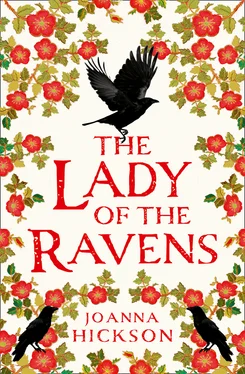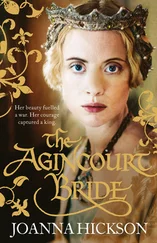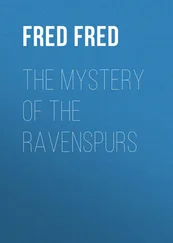I folded the letter, written in King Henry’s own looping hand; surely another sign of his wish to please his intended bride. ‘I will go now if you like,’ I suggested, handing it back. Conscious of Usher Gainsford’s warnings, I refrained from making any mention of my morning activities.
‘Yes, thank you, Joan. But I think I will lie down meanwhile. Will you draw the curtains around the bed and help me remove my gown before you go? Wake me when you return if I’m asleep, won’t you?’
Elizabeth was encouraged not to venture out into London’s streets, even in a concealing hood. Most Londoners had always heartily supported her charismatic father, King Edward, and probably would welcome a glimpse of his daughter but King Henry cited the violent street clashes of persistently opposing factions as a reason for her to keep out of sight. Clearly it was considered that a lowly commoner like me could run the risk. Before I left I set a maid outside her door, who might hear her if she called.
Coldharbour was situated not very far from the Tower but it was quite a walk to Blackfriars at the western end of the city wall, where Elizabeth’s favoured apothecary had his shop. However, despite the gutter stink of emptied piss-pots, I enjoyed negotiating the bustle of Thames Street and, in daylight at least, the greatest danger was only from the flyblown offal and dead vermin that littered the thoroughfare.
To my delight, in one of the alleyways leading down to the river, I spotted a busy flock of ravens squabbling around the carcass of a stray dog. London was full of such carrion, which attracted these large birds in considerable numbers. Goodwives might chase them away but they were surely of help to the unfortunate gongfermers, overwhelmed by the task of waste disposal in the city. Over the years I had learned that most of the citizens did not share the Tower garrison’s intense dislike of ravens. Stopping briefly to watch, I admired the birds’ glossy black feathers, which seemed to throw off blue and green reflections under the stray rays of sun that pierced the gloom under the overhanging timber-framed houses flanking the alley.
When I reached the apothecary’s shop in the black monks’ walled enclave, I took it upon myself to ask whether any harm could come of taking too much of the vervain potion but was reassured that its soothing qualities were potent but harmless, so I gave an order for several bottles. While this was being fulfilled, I stole an hour to pay a visit to my mother, who rented rooms in the Blackfriars’ extensive demesne. Katherine, Lady Vaux, to give her official title, although her friends called her Kate, was a popular resident of the tenements there, which had been built to house the widows and families of knights killed on the battlefield. Whenever I called in, I usually found some other lady with her, seeking comfort or advice from one who was known to be wise and well acquainted with grief. On this occasion however, I found my mother in the process of teaching her maidservant, Jess, how to write but the instant I arrived she put aside the waxed tablet they had been using and shooed the girl away into the scullery.
‘What a treat to see you, Gigi!’ she exclaimed, embracing me warmly and delighting me, as she always did, with the use of my childhood nickname and the slight foreign lilt in her voice. I had always thought her a handsome woman, whose dark features I had inherited, although sadly not, in my view, her marvellous warmth and generosity. ‘I expect you have been very occupied with your bride-in-waiting. And I gather Lady Margaret is now ruling the kingdom, while her son is closeted away learning the laws and liberties of England. How is my old friend? In her element I warrant.’
Her friendship with the king’s mother went back more than thirty years, to when she had been a maid of the chamber to Queen Marguerite. They were much of an age and Lady Margaret had been a maid of honour at court before her brief but fruitful marriage to Edmund Tudor, King Henry VI’s half-brother.
‘Indeed. She is officially presiding over the Privy Council,’ I said, taking a seat on the carved settle beside the well-stoked fire. ‘I don’t sit in the council obviously, but I can imagine her style of leadership rather resembles the red dragon on King Henry’s battle banner, breathing flames of fire.’
My mother shrugged and gave a rueful smile. ‘She may be fierce in public but she was always the kindest of friends. I would never have married your father if she had not promoted our match with the king. Even after Edward of York took the throne and forced us to flee back to Piedmont she always wrote to me. And what would I have done with you and Nicholas when poor Queen Marguerite begged me to stay with her as she was taken prisoner to the Tower? Margaret took you in and refused any payment.’
Her memories of that time always made her a little sad. England had been in turmoil. Edward of York had been victorious at yet another bloody battle in which my father was killed, fighting alongside Queen Marguerite’s treasured only son, who also died. In mourning and despair, the two bereaved friends were taken captive to the Tower of London and that is how my brother and I had gone to live with the present king’s mother. Although neither royal nor noble, the life of the Vaux family had not been without incident.
I nodded in acknowledgement. ‘It’s true that she’s always been generous and now she is also working hard on behalf of her son. While he is closeted away making plans for England, my lady leaves Coldharbour after Prime and rarely returns before Compline. But we talk together at supper and she tells me that she misses you greatly. However I can assure you that she doesn’t miss a Mass, even though these days her chaplain has to follow her around like a lap dog.’
This picture made my mother laugh. She had poured two cups of ale from a jug and carried them over to sit down beside me. ‘Margaret’s always been punctilious in her piety; but I hope you’re not implying that I was once her lap dog,’ she added, passing me a cup.
My walk had made me thirsty and I sipped eagerly before responding, ‘Far from it, Mamma. You will always be Lady Margaret’s greatest friend. If you were ever anyone’s lap dog it was Queen Marguerite’s. There is no denying that you were a martyr to her.’
For the second time that day I found myself recalling my first childhood visit to the Tower when, after the encounter with the raven, I had found my mother still trying hopelessly to console the bereaved and captive former queen. Out of her mind with grief, Queen Marguerite had taken one look at me and dissolved into tears, wailing, ‘I lost my one child, my beautiful Prince Édouard, slain in battle; only seventeen and dying unshriven!’
I had then endured a sobbing hug that lasted for what seemed like an age. Subsequently, during the scant hour’s visit I had been permitted, it had been impossible for us to share our own grief over my father’s battlefield death alongside the prince, without his mother’s continuous keening as an accompaniment. Then, after the French king at last paid her ransom, Marguerite had somehow persuaded her faithful companion to go back with her to Anjou and leave my brother and me with Lady Margaret. During the next six years I saw my mother only once, when she managed to escape to England for a brief visit. As a result I always wondered whether such selfless loyalty should have taken precedence over motherly love.
Now my mother regarded me solemnly. ‘You are right, I was. I admit it. But look what a superb education you received as Lady Margaret’s ward. Few girls are granted such a chance and you have made the most of it.’
I nodded again and took another gulp of ale. After a pause I added, ‘I see you are teaching Jess her letters.’
Читать дальше












